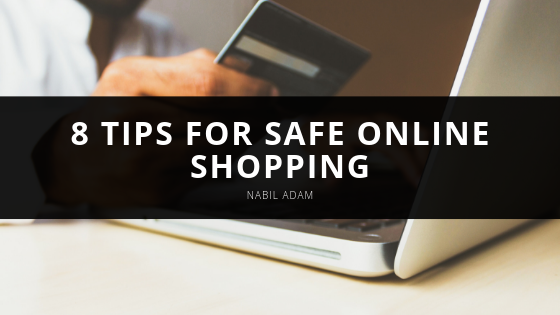It’s easy to fall in love with online shopping. You can find the best deals and have your items shipped to your front door without leaving your home. However, you must keep in mind that you must take measures that will help you have a safe online shopping experience.
In 2016, the Federal Bureau of Investigation received over 300,000 online theft complaints. It’s fair to say that more claims will be filed as time progresses. Let’s go over eight tips that can lower the chances of you becoming a victim of cybercrime.
- Do Business with Reputable Merchants
Does the merchant have a good reputation with consumers and consumer protection agencies? If you are not familiar with the merchant’s reputation, it’s imperative to do your due diligence. You can learn more about merchants by checking out the sites that review e-commerce stores.
- Search for the Lock
Stay away from sites that don’t have secure sockets layer encryption. If you don’t see a locked padlock symbol, you may be putting your credit card information at risk.
- Avoid Sharing Your Personal Information
There’s no reason for online merchants to ask for your social security number or birth date to complete a transaction. Crooks can do a lot of damage if they can get your personal information.
- Be Suspicious of Special Offers
It’s normal for merchants to offer discounted goods. This approach helps them stay competitive online. However, you should be leery of items being offered at rock bottom prices. There’s a possibility that the merchant may be running a scam.
- Use a Long Password
You may be tempted to use a short password, but you should go the extra mile by creating a long password. A long password will make it difficult for cyber thieves to get your information. Not only that your password should contain both capital and lower case letters and numbers. Throw in a few symbols too if you can. The more complex the password the better. If you’re worried about forgetting your passwords, use a secure password manager like LastPass.
- Don’t Use Public Wi-Fi While Shopping
Wi-Fi networks are popular, but they are not secure. Anyone with limited tech knowledge can intercept vital information. This includes email addresses, passwords, and browsing history.
- Check Your Statements
Check your bank statements once a week for fraudulent purchases. You should also consider setting up account alerts.
- Report Fraudulent or Suspicious Activity
If you believe that the prospective merchant is bogus, get in touch with your credit card company. They will deactivate your card and issue a new one. You should also file a complaint with the United States Federal Trade Commission.
Shopping online is fun and convenient. However, you must take steps that will protect you from cyber thieves. The tips listed above will help you have a safe online shopping experience. Happy shopping!

